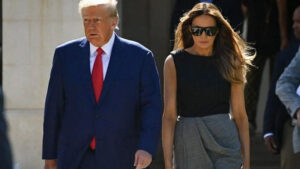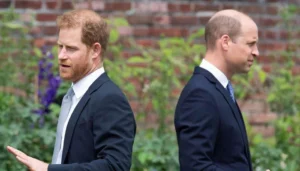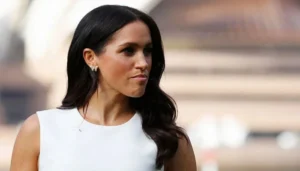“Very unlikely” – Trump’s legal team faces major blow as Supreme Court ruling sparks outrage
Former President Donald Trump’s legal team has been dealt a significant setback as legal experts suggest it’s “very unlikely” they’ll succeed in getting the federal election interference case dismissed based on a recent Supreme Court ruling.
According to a report by Newsweek on Saturday, June 29, 2024, the ruling, which has sparked outrage among Trump supporters, narrowed the interpretation of a federal obstruction charge used in hundreds of January 6 riot prosecutions.
John Dean, a former White House counsel during the Nixon era, delivered a sobering assessment of Trump’s legal prospects in an interview with CNN.
“I think it’s very unlikely he’s going to get it dismissed,” Dean stated, emphasizing that the Supreme Court’s decision was far more limited in scope than many initially believed.
Dean went on to explain that the ruling’s impact has been “overread and overplayed” in media coverage, with many failing to grasp its true implications.
The case in question stems from charges brought by special counsel Jack Smith, accusing Trump of attempting to overturn the results of the 2020 election.
Despite the setback, Trump’s campaign team remains defiant, sharing a social media post in which the former president hailed the Supreme Court ruling as a “BIG WIN.”
However, legal experts like Barbara McQuade, a former U.S. Attorney, argue that the ruling is unlikely to significantly impact Trump’s case.
McQuade pointed out that while the decision might overturn some convictions for January 6 defendants, Trump’s situation is markedly different.
She explained that Trump’s case involves allegations of fraudulent documents related to fake slates of electors, which the court specifically indicated falls within the scope of the law.
The Supreme Court’s ruling came in response to a case brought by Joseph Fischer, a former police officer from Pennsylvania indicted for his role in the January 6 Capitol riot.
That fateful day saw hundreds of Trump supporters storm Congress in an attempt to halt the certification of Joe Biden’s 2020 presidential election victory.
The riot turned violent, resulting in the death of one protester and injuries to dozens of police officers.
In August, Trump was indicted on four counts related to his alleged efforts to overturn the 2020 election results.
These charges include conspiracy to defraud the U.S., conspiracy to obstruct an official proceeding, obstruction of and attempt to obstruct an official proceeding, and conspiracy against rights.
Trump has pleaded not guilty to all charges, maintaining his innocence throughout the legal proceedings.
The recent Supreme Court decision concluded that the “obstructing an official procedure” charge specifically related to document tampering, rather than encompassing more general violent disorder.
This interpretation has led some to speculate about its potential impact on Trump’s case, though experts like Dean and McQuade remain skeptical of any significant benefit to the former president.
Dean emphasized that special counsel Jack Smith was likely aware of the potential for such a ruling when filing the indictment against Trump.
He expressed confidence that Smith’s indictment would “withstand any test” brought against it in light of the Supreme Court’s decision.
The legal challenges facing Trump extend beyond this single case, with the former president already convicted of falsifying business records to conceal a hush-money payment ahead of the 2016 election.
Trump has rejected this verdict and is widely expected to appeal the decision.
Additionally, he faces charges related to allegations of mishandling classified documents after leaving office and attempting to illegally influence the 2020 election results in Georgia.
As Trump continues to navigate these legal hurdles, the Supreme Court is poised to make another crucial decision that could significantly impact his case.
On July 1, the court is expected to rule on whether Trump has presidential immunity for “official acts” undertaken while in the White House.
This upcoming decision has the potential to reshape the legal landscape surrounding the former president’s actions during his time in office.
The January 6 riot remains a pivotal moment in recent American history, with its repercussions continuing to reverberate through the political and legal systems.
The event saw Trump supporters breach the Capitol building in an unprecedented attack on the democratic process, seeking to prevent the certification of Joe Biden’s electoral victory.
The violence that ensued shocked the nation and led to a wide-ranging investigation into the causes and participants of the riot.
As the legal proceedings against Trump and other January 6 defendants continue, the courts are grappling with complex questions of constitutional law and presidential power.
The recent Supreme Court ruling has added another layer of complexity to these deliberations, potentially influencing how similar cases are prosecuted in the future.
Despite the setbacks and ongoing legal challenges, Trump remains a dominant figure in Republican politics, with many supporters viewing the various investigations and charges as politically motivated attacks.
The former president continues to maintain a strong base of support as he eyes a potential return to the White House in the 2024 election.
However, the outcome of these legal battles could have far-reaching implications for Trump’s political future and the broader landscape of American democracy.








